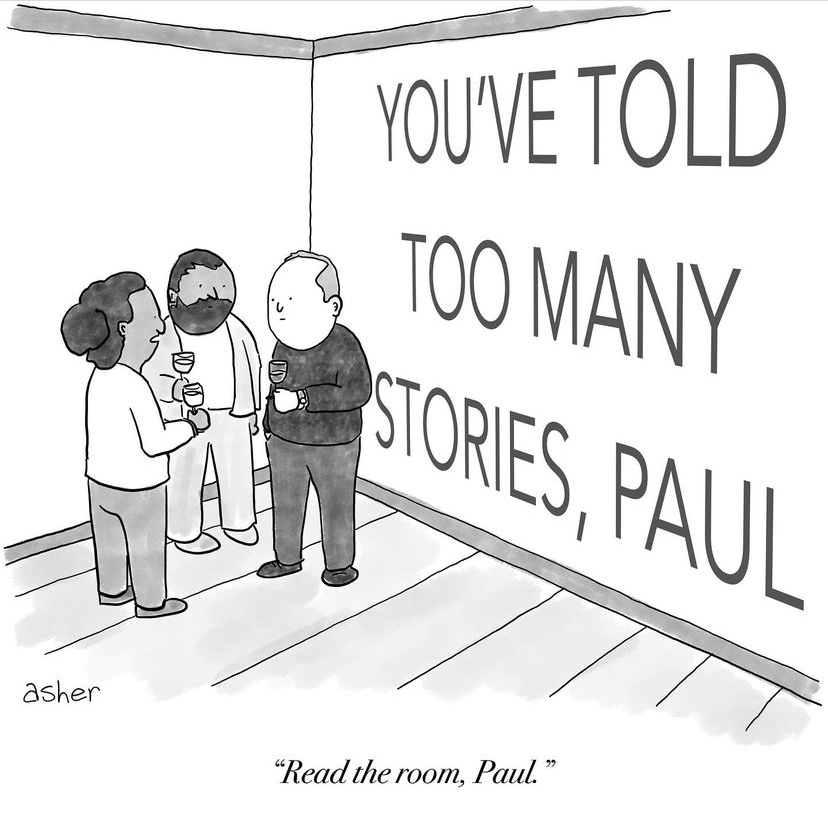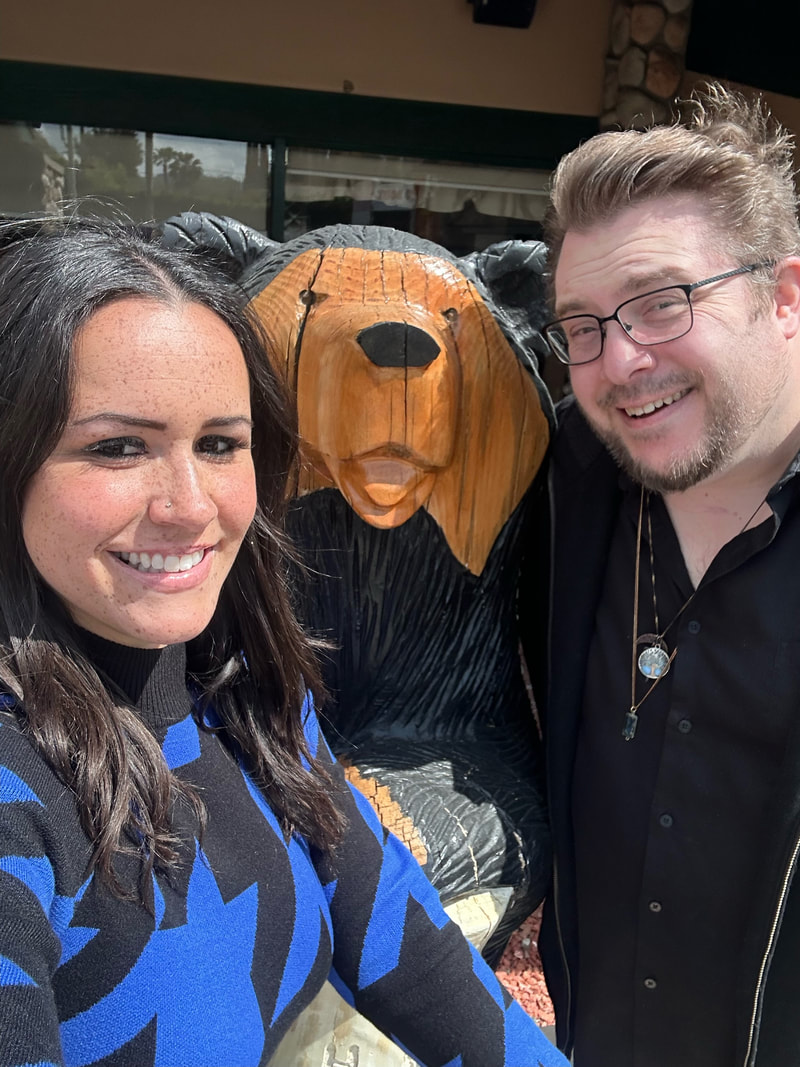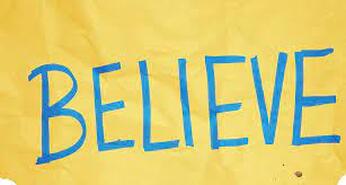|
Being a comedian has a lot of unique frustrations, but maybe the biggest one is getting unsolicited advice from everyone you know. I don't care if you've been doing standup for 1 day or 10 years, you're going to get advice from friends, family, comics, bookers, audience members, strangers, and even social media trolls. It seems no one knows how to write a song but everyone knows how to tell a joke. And better than you. They also know if your jokes are "good enough" or not to win comedy contests, get on late night TV, or start headlining.
People will DM you about jokes you posted. People will tell you to call Netflix. People will ask "when are you playing The Comedy Store?" And that's just your family at Thanksgiving. Yet, if you take everyone's advice or suggestions you will find yourself battling conflicting suggestions. You can't work on a corporate friendly Dry Bar set while also trying to make Roast Battle a thing. You can't write a bunch of spec sketches and scripts and be on the road all month. Some advice will be antithetical to your personal life - becoming a cruise comic might be fun but your family at home might not like you gone all the time. So let's look at how to take advice and criticism correctly, so you can navigate your career correctly and maximize the financial potential as well. Solicited v. Unsolicited Advice There is a clear difference between advice asked for and advice thrusted upon you. When you ask a fellow comic for a joke tag or career advice, just take it in and decide if that works for you. Don't be reactionary. You asked, remember. I'll never forget co-running the feedback mic at Flappers or running the feedback sessions at Flapper's auditions and people KNEW they were going to get feedback, and they'd get defensive and snippy. Most didn't, but about 20-25% would shoot back with "that killed last week" and then act all pouty. The worst is when people took a Level 1 workshop with me and then tell me, "Well, George Carlin did those types of jokes!" Then why did you take the class if you can just watch George Carlin? With unsolicited advice, you also have to take a breather and just know that they are coming from a place of ignorance. I like to smile and say, "I'll think about that." Then I walk away. Remember, any person who can't just say "nice job" but feels the need to share their thoughts probably do this to the Starbucks barista, their pastor, and have a disjointed relationship with their kids. It's a DNA defect most of the time. Their pappy was a advice giver and his pappy before him. Most People Who Give Unsolicited Advice Don't Have Your Best Intentions At Heart You didn't see that coming did you? While most people think their advice is solid, ask yourself: Is this person even in my industry? Do they have success that I want as well? If not, then why would they give you "free" advice? Without sounding like a conspiracy theorist, most people don't have your best interests at heart - they have their own. If someone says you're too dirty, they mean "I would never say that joke." If someone calls you "too woke" or "too conservative" they just mean for their tastes. You offended them and they're using fancy linguistic techniques to skirt around the issue they felt upset for a second. If someone says you "need more of this..." in your act or "focus on this aspect..." what they are usually saying is "I focused on that and if you do the opposite it makes me second guess my choices." Plus, at the root of non-comedian advice is basically people saying, "I didn't follow my dreams, so I don't like the way you're teetering on the edge here." They don't know they're being passive aggressive. This is all Freudian subconscious psychotherapy analysis, but I'm a big believer in Freud. Most people have a low emotional IQ, so when they feel something they don't like, instead of introspectively looking at their response, they simply want others to stop doing what they don't like. This is where the "cancel culture" attitudes stem from. People wanting to rid the culture of things they don't like, not acknowledging that the things they do like, can be just as offensive to someone else. In Roger Ebert's review of The People v. Larry Flint (1996) he broke down the 1st Amendment trial with this deconstructive argument: "The Supreme Court's ruling in the Hustler case came under attack at the time, but consider this: If (Rev. Jerry Falwell) had won his suit against Flynt, this newspaper would be fundamentally different. The editorial cartoons could not make fun of public officials. The op-ed columns could not risk offending. The lawyers might have questioned a recent review in which I said a film should be cut up into ukulele picks; after all, that might have hurt the director's feelings. And Falwell himself might not have been able to broadcast his sermons, because they might have offended atheists (or you, or me)." When people attack or critique you, look at how they might benefit or where their alliances run. Maybe they are embarrassed by your act and think their friends or family are watching. Maybe they are afraid you're going to become too big for them one day. Maybe they just like being antagonistic because its a personality trait. People are more complex than we want to admit. Creating Boundaries With Family and Friends You can't escape the know-it-all audience member or YouTube comment section guy. Family and friends are a different story. In this case, creating boundaries is the key. Learning when to respond and how to respond varies. One thing I like to suggest is that people ask questions before making statements. So if you have a family member who wishes you were just working more on your 9 to 5 or focusing on their agenda for you, feel free to tell them to ask inquisitive questions, not bold critiques. If they didn't like a joke, asking "what inspired that joke?" instead of saying "its not funny" goes a long way. Half the time they're upset because they didn't get the joke to begin with. If you find people are giving you career advice, it just might be because they are ignorant. When they say things like, "You should write for SNL," just let them know "I'll ask my friends with connections about the process." No reason to explain how hard breaking into the top networks and platforms are. If they asked a dumb question, then they wouldn't understand why they're wrong for asking to begin with. While their ignorance is frustrating, no reason to cause WWIII. If they do become overtly hostile, feel free to respond with something simple like. "I will worry about my career and you worry about yours. I don't tell you how to do your job, so let's maintain our relationship on things we have in common, not what divides us." They might not like it, but having a canned answer stops you from saying something you might regret later. People who feel the need to "be right" aren't going to change for you, but you can at least put an end to their ill informed suggestions. Final Thoughts Working in a negative energy can be hard. When people flood your head with ideas, critiques, suggestions, etc. that are not useful, it can wear you down and create doubt in your plans and current strategies. Yet, as awful as some advice is, you can always pull the nuggets out that might be a wind to help refocus your sail. Rudyard Kipling's poem "IF" asked that question a long time ago: If you can keep your head when all about you Are losing theirs and blaming it on you, If you can trust yourself when all men doubt you, But make allowance for their doubting too; When I was in college, I had an English professor grade papers in a blue or black color pencil. He said, if you don't like something, just erase it. I loved that. Take the critiques that work and brush off the ones that don't. Life is too busy to let someone live rent free in your head all day. I mean, at least make them buy you a couple drinks first.
0 Comments
Leave a Reply. |
Paul Douglas Moomjean Blog's About What's on His MindBlogging allows for me to rant when there is no stage in the moment to talk about what's important and/or funny to me. Archives
July 2024
Categories |


 RSS Feed
RSS Feed
